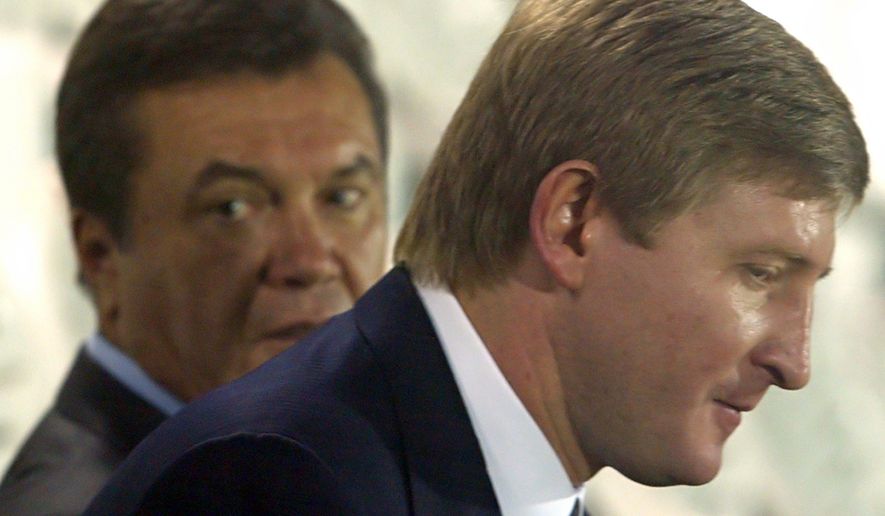War is not an independent phenomenon, but the continuation of politics by different means. — Carl von Clausewitz
I have often wondered why the former Soviet territories seem so different in terms of their view of civilization in general. Why do their leaders tend to many times ignore the needs of their population in favor of personal gain and power? Why do many Russians feel nostalgic for Stalin and consider his crimes “worth it” to propel Russia into the twentieth century? What is it about Western Europe that caused it to evolve on a different path of enlightenment in the last 70 years? Or is the Eastern European way more honest when it comes to human nature, and is Western Europe simply enjoying the calm before the storm as their moribund economies wilt in the face of government central planning and wealth redistribution, eventually paving the way for economic crisis and inevitable war?
I think the answer to these questions lie in history. Today we are seeing the consequences of history play out in Ukraine.
The feudal system vanished mostly from Europe in the 16th century as nation-states became dominant. However, this system of lords and vassals coexisting in a symbiotic relationship did not die out in the former Soviet territories until later in the 19th century. Wikipedia explains it this way, “Feudalism itself decayed and effectively disappeared in most of Western Europe by about 1500. It lingered on in parts of Central and Eastern Europe as late as the 1850s. Russia finally abolished serfdom in 1861.”
In Ukraine today, feudal lords are still jockeying for power and wealth, and nation-states are attempting to absorb the warring factions into their own spheres of influence. As we speak, Ukraine’s oligarchs are attempting to push back against Kiev’s drive to reduce their power and install much needed economic and anti-corruption reforms. Ihor Kolomoisky has been removed as the governor of Dnipropetrovsk by Ukrainian President Poroshenko in a move seen by Kiev as necessary to enshrine the federal government’s rule over the Lord of Dnipropetrovsk. It seems the oligarch sent armed men into a building in Kiev recently in a direct challenge to Mr. Poroshenko’s anti-corruption agenda. This sacking comes in spite of Mr. Kolomoisky’s irrefutable support to the Ukrainian state in the defense of his territory from the Kremlin controlled, pro-Russian separatists.
Another oligarch, Rinat Akhmetov, who is said to be Ukraine’s richest man and was close to former President Yanukovych, is said to be actively attempting to resist Kiev’s policies of reform as well. This resistance is coming through strikes, work stoppages, and other tactics to put economic pressure on the central government. Mr. Akhmetov has even been described by the Kiev Post as having a close relationship with the separatists in the East, effectively providing revenue and jobs to the region in return for protection of his assets and ability to do business in East Ukraine.
The Economist states, Rinat Akhmetov, a 48-year-old multibillionare, has long run the Donbass region like his own feudal estate. So in Ukraine you have the nobility of Donbass, Dnipro, and others fighting the central government in Kiev for power and wealth. You have the general population, or serfs, longing for more freedom and a European Union-enlightened experience, threatening to start Maidan 3, or another violent protest to demand change and a better life. You have outside nation states like Russia, the United States and the European Union battling for control and influence in Ukraine.
One of these nation states has a special relationship with Ukraine. Ukraine is central to the Russian psyche and perceived security (or insecurity). It is where slavic civilization started in the kingdom of Kievan Rus’ before the princes moved to Moscow after being overrun by the Golden Horde. Fox News reported on the U.S. State Department claims that Russia is massing troops on the Ukrainian border, Russia has recently sent arms and drone aircraft into eastern Ukraine and is massing its troops along the tense border, which raises concern about new escalation in the conflict, the State Department said Wednesday.
Russia has built up its air defense systems to their highest levels since August of last year, State Department spokeswoman Marie Harf said in a statement. Russia has been supporting separatists battling Ukrainian government forces. Ms. Harf said Russia has now deployed more troops and military material on its border with Ukraine than at any time since the heaviest fighting in October.
It seems Ukraine is stuck in a feudal time warp of several hundred years ago. The only difference is now the players wear suits and have sophisticated conventional arms and nuclear weapons.
This is how wars start.
As always, here are some interesting, related stories: On Mr. Akhmetov, unlikely suicides and Ukraine’s warring oligarchs.
For more information about L. Todd Wood, visit LToddWood.com.




Please read our comment policy before commenting.